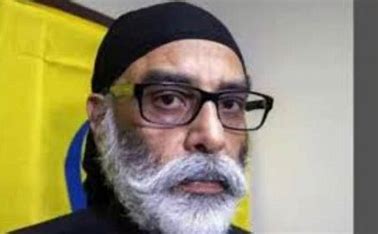PANAJI, GOA: The recent addition of Vikas Yadav to the FBI’s Wanted List has become a subject of intrigue and speculation, primarily because the alleged target in the case, Gurpatwant Singh Pannun, is not considered a significant figure in the eyes of Indian intelligence. Pannun, a known advocate for Sikh separatism, has been vocally critical of India, but sources suggest that his profile does not merit a targeted elimination effort by India. The narrative surrounding his supposed importance seems more like an attempt by the US to decode the enigma of India’s assertive covert operations rather than a reflection of any real threat he poses.
For the last couple years, unexplained deaths and targeted eliminations of terrorists, gangsters, and individuals linked to anti-India activities have quietly unfolded across continents, hinting at an unseen strategy to neutralise security threats far beyond Indian borders. Mysterious killings, suspected poisonings, and sudden deaths have occurred from Karachi to London, with those involved in orchestrating or supporting terror against India often meeting violent fates. The recent eliminations of figures like Lashkar commander Mohammed Muzammil, Jaish operative Raheem Ullah Tariq, and gangster-turned-terrorist Sukhdool Singh have added to the whispers of India’s covert capability.
These events suggest a highly coordinated effort that transcends geographical boundaries, undermining the notion that distance or political asylum can offer protection to individuals who pose a threat to India’s security. An anonymous intelligence source remarked, “Pannun isn’t significant enough for India to undertake a covert operation to eliminate him. America’s fixation on this case indicates a broader interest in understanding India’s Black Ops capabilities.” The subtle pattern of targeted killings across diverse locations—each incident leaving minimal evidence of state involvement—reflects a strategy that places emphasis on quiet and efficient execution.
In recent months, terrorists with links to groups such as Lashkar-e-Taiba (LeT), Jaish-e-Mohammed (JeM), Hizbul Mujahideen, and Khalistani separatist factions have been systematically eliminated. Hanzla Adnan, alias Adnan Ahmed, a conspirator behind the 2015 Udhampur attack on a BSF convoy, was shot dead in Karachi, a fate shared by other militants who believed themselves safe across Pakistan’s borders. Another prominent case was Sajid Mir, the orchestrator of the 26/11 Mumbai attacks, who died from poisoning while inside Pakistan’s Central Jail at Dera Ghazi Khan—a sign that not even incarceration offered immunity from retribution.
Similarly, Lashkar commander Mohammed Muzammil, known for his involvement in numerous attacks in India, met his end in Sialkot, while Maulana Raheem Ullah Tariq, a close aide to JeM’s Masood Azhar, was shot dead in Karachi’s Orangi Town. The elimination of senior LeT operative Akram Khan Ghazi, who was instrumental in radicalising recruits for infiltration into Kashmir, occurred in Bajaur, Khyber Pakhtunkhwa, suggesting that India’s enemies could no longer count on safe havens in Pakistan’s volatile regions.
The trend extends to figures who played a role in some of India’s darkest chapters. Shahid Latif, a key planner behind the 2016 Pathankot attack, was gunned down in Sialkot. Meanwhile, Ibrahim Kamaluddin, the son of Hafiz Saeed and linked to the 26/11 Mumbai terror attack, was abducted by unknown assailants before his body was discovered, marking another high-profile death in a series of eliminations aimed at LeT’s leadership.
These cases are not confined to Pakistani soil. Figures linked to Khalistani terrorism have also met fatal ends. Avtar Singh Khanda, believed to be the handler of separatist Amritpal Singh, succumbed to suspected poisoning in a London hospital, while Sukhdool Singh, a gangster-turned-terrorist who fled India in 2017, was gunned down in Canada, where anti-India voices have found sympathetic ears. Notably, Paramjit Singh Panjwar, leader of the banned Khalistan Commando Force, was shot dead in Lahore, further adding to the tally of anti-India figures meeting violent ends overseas.
The eliminations stretch into Nepal, Afghanistan, and even the United Kingdom, indicating that no geographical boundary can protect those who pose threats to India. In Kathmandu, ISI operative Lal Mohammad, who had long been involved in anti-India activities, was killed. In Afghanistan’s Kunar province, ISIS terrorist Ejaz Ahmed Ahangar, known for plotting attacks in the Kashmir Valley, was also eliminated. These deaths, occurring far from Indian borders, seem to form a pattern that hints at a cross-continental reach of the “unknown gunmen.”
Syed Noor Shalobar, who was responsible for recruiting young Kashmiris for militant activities with the backing of the Pakistani Army and ISI, was killed in Khyber Pakhtunkhwa, while Lashkar-e-Jabbar founder Dawood Malik, who had close ties to Masood Azhar, met a similar fate in North Waziristan. The systematic targeting of these figures points toward a sophisticated network operating behind the scenes, quietly erasing existential threats.
India has maintained a strategic silence on these events. A source within Indian intelligence remarked cryptically, “India is not complaining if our existential threats are being neutralised. The hand of God works in mysterious ways. Like I said, we are concerned about
Savio Rodrigues is Founder and Editor-in-chief of Goa Chronicle.

